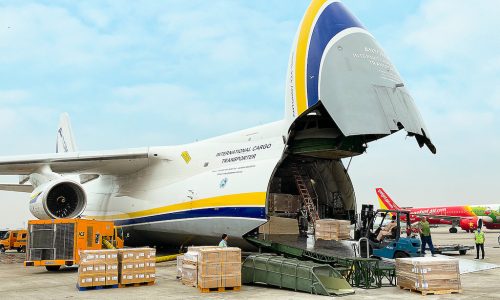The automotive industry is facing changes due to new technologies, a shift in customer expectations and an ever-stronger focus on Environmental, Social and Governance policies (ESG).
Those are the takeaways from a new trend report, “Automotive – A Shifting Landscape“, sponsored by DHL Supply Chain, which has calibrated current findings from research institutes showing how the pandemic will create or speed up some trends in the automotive industry, but stall others.
Said Dr Dietmar Steins, EVP Global Solutions Design at DHL Supply Chain: “With borders and shops closed, last year has made the importance of flexible and reliable supply chains very clear. The industry will transit into a new normal after the pandemic, with retail models changing and automation increasing.
“But these are not the only challenges OEMs will face in the future. We have to acknowledge the role logistics plays when it comes to sustainability. There are already lots of possibilities to support the automotive industry towards more environmental consciousness.
“We support our customers in implementing ongoing trends such as sustainability and digitalization into their supply chains.”
The study unveiled that there are several aspects which impact the automotive industry and which in addition create interdependencies on each other. Car manufacturers and their suppliers are moving exponentially towards emission-free mobility by making the transition to electrification, while COVID-19 is shaping future swings and distorting past predictions.
As OEMs are affected by fixed costs with little or no revenue, investments in future trends such as self-driving cars have been trimmed or refocused. Online sales, once claimed to never replace the dealership experience, may be getting a second wind.
Projects and capital expenditures that are not contributing to the immediate bottom line have been delayed. On a broader level, some of the industry’s deepest-held beliefs about globalization and supply chains are being put under pressure by the pandemic.
According to researchers, independent regional strategies will gain more importance in the automotive industry. With countries in lockdown and manufactures closed, localization or at least flexibilization of supply chains are key for the resilience of the sector.
Studies also show that the industry is far from the end of digitalization. With the rise of automation and connectivity, the industry is heavily investing in artificial intelligence and machine learning.
In the age of data supremacy, OEMs are further migrating to a more service- and customer-oriented model leading to changing retail models. In order to make the industry more sustainable holistically and to comply with corresponding policies, the supply chain must also be taken into account. Sustainable solutions are required to get us on the way to greener mobility.
Said Hendrik Venter, CEO DHL Supply Chain EMEA: “Thanks to our longstanding expertise in handling complex supply chains, we can recognize changes in the industry at an early stage and adapt to them. With our sustainable warehouse, transport, and packaging solutions, we offer OEMs the support they need to achieve their ESG targets.
“The move to e-commerce or direct-to-consumer sales is also facilitated through the Digital Freight Platform and other digital retail solutions we offer. We are very proud to be able to provide the automotive industry the support it needs.”

